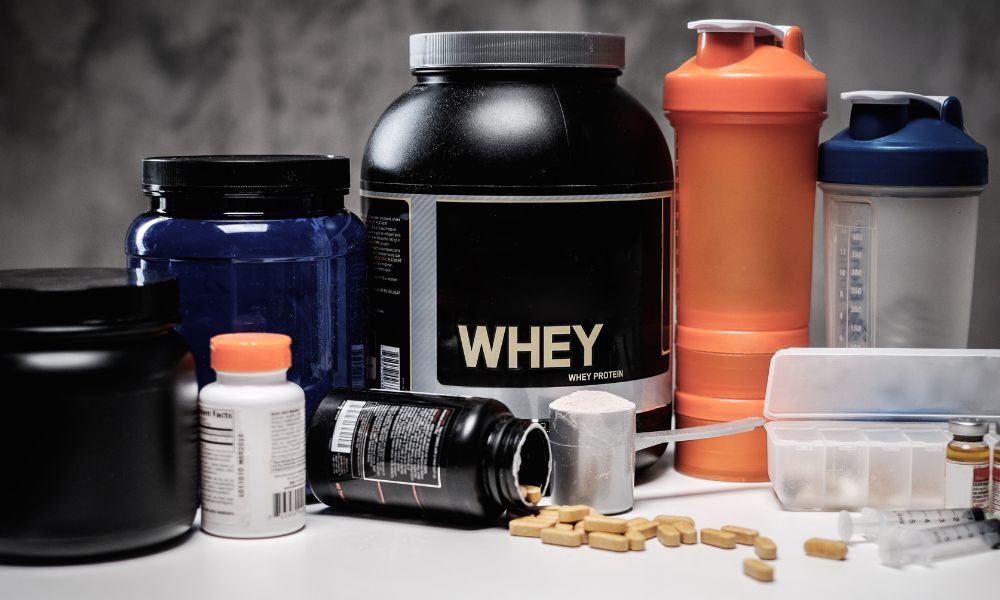Low-Caffeine Pre-Workouts: How to Improve Gym Performance without Stimulants
Pre-workout supplements have become increasingly popular among fitness enthusiasts and athletes looking to maximize their training performance.
These supplements are designed to provide an extra edge during workouts, whether it's increased energy, enhanced endurance, or improved focus. While many pre-workouts contain high doses of caffeine to deliver these benefits, there is a growing interest in low caffeine pre-workouts as a safer and more sustainable option.
In this guide, we will explore the benefits of low caffeine pre-workouts, how they work, key ingredients to look for, and provide a list of research supporting the use of pre-workouts.
Understanding Pre-Workouts
Pre-workout supplements are formulated to enhance various aspects of exercise performance, including energy, endurance, strength, and focus. They typically come in the form of powdered drinks or capsules and are consumed shortly before a workout session. The primary goal of these supplements is to help individuals train harder, for longer durations, and with increased intensity.
How Pre-Workouts Work
-
Energy Boost: One of the primary functions of pre-workouts is to increase energy levels. Low caffeine pre-workouts achieve this through moderate doses of caffeine, which is a stimulant that can enhance alertness and reduce perceived effort during exercise. The lower caffeine content in these supplements helps prevent excessive stimulation and potential side effects like jitters, anxiety, and heart palpitations.
-
Improved Endurance: Pre-workouts often contain ingredients like beta-alanine and citrulline malate, which can improve endurance by increasing the body's ability to buffer lactic acid and enhance nitric oxide production. This results in reduced fatigue during prolonged exercise sessions, enabling individuals to push harder for longer.
-
Enhanced Focus: Maintaining focus during a workout is crucial for both safety and performance. Some low caffeine pre-workouts incorporate ingredients like L-tyrosine and theanine, which can improve cognitive function and concentration without the excessive caffeine-induced jitters.
-
Muscle Pump: The feeling of "muscle pump" is desirable for many gym-goers. It refers to the increased blood flow and temporary enlargement of muscle tissues during exercise. Ingredients such as citrulline malate can promote muscle pump by increasing nitric oxide levels, which relax blood vessels and improve blood flow to the muscles.
Key Ingredients in Low Caffeine Pre-Workouts
-
Caffeine: Low caffeine pre-workouts typically contain around 100-150 mg of caffeine per serving, compared to the 200+ mg found in high caffeine versions. This lower dosage provides a mild energy boost without the risk of overstimulation.
-
Beta-Alanine: Beta-alanine is an amino acid that helps increase muscle carnosine levels. Carnosine acts as a buffer against the buildup of lactic acid, delaying muscle fatigue and allowing for longer and more intense workouts.
-
Citrulline Malate: This amino acid compound increases nitric oxide production, promoting vasodilation and improving blood flow. It enhances endurance and muscle pump, contributing to improved overall workout performance.
-
L-Tyrosine: L-tyrosine is an amino acid that supports mental focus and cognitive function. It can help maintain concentration during workouts and reduce stress-related performance declines.
-
Theanine: Often found in combination with caffeine, theanine is an amino acid known for its calming effects. When paired with caffeine, it can reduce the jittery feeling associated with higher caffeine doses while preserving the energy-boosting benefits.
-
Creatine: Creatine is a well-researched compound that improves muscle energy production. It helps increase strength and power, particularly during high-intensity, short-duration activities.
-
Electrolytes: Electrolytes like sodium, potassium, and magnesium help maintain proper muscle function and hydration levels. Including them in a pre-workout supplement can prevent cramping and improve overall performance, especially during prolonged exercise.
Benefits of Low Caffeine Pre-Workouts
-
Sustained Energy: Low caffeine pre-workouts offer a steady and sustainable energy boost without the risk of energy crashes or excessive caffeine-related side effects. This makes them suitable for individuals who are sensitive to caffeine or prefer a milder stimulant effect.
-
Enhanced Endurance: The inclusion of ingredients like beta-alanine and citrulline malate in low caffeine pre-workouts can lead to improved endurance, allowing users to push through longer and more challenging workouts.
-
Focus and Concentration: Low caffeine pre-workouts containing L-tyrosine and theanine help users maintain mental focus and concentration without the distracting side effects of excessive caffeine.
-
Reduced Jitters and Anxiety: By providing a moderate caffeine dose in combination with calming agents like theanine, low caffeine pre-workouts minimize the jitters and anxiety often associated with high caffeine intake.
-
Improved Muscle Pump: Citrulline malate in these supplements enhances nitric oxide production, leading to better blood flow, muscle pump, and nutrient delivery to muscles.
The Science on the Benefits of Pre-Workouts
Here is a list of scientific papers related to the benefits of pre-workout supplements, including those that focus on low caffeine pre-workouts:
-
Smith-Ryan, A. E., & Antonio, J. (2013). Nutritional Supplements for Endurance Athletes. Journal of the American College of Nutrition, 32(3), 185-199.
-
Harty, P. S., Cottet, M. L., & Malloy, J. K. (2018). Nutritional and Supplementation Strategies to Prevent and Attenuate Exercise-Induced Muscle Damage: A Brief Review. Sports Medicine - Open, 4(1), 1-8.
-
Trexler, E. T., Smith-Ryan, A. E., Stout, J. R., Hoffman, J. R., Wilborn, C. D., Sale, C., ... & Campbell, B. (2019). International Society of Sports Nutrition Position Stand: Beta-Alanine. Journal of the International Society of Sports Nutrition, 16(1), 1-23.
-
Grgic, J., Trexler, E. T., Lazinica, B., & Pedisic, Z. (2020). Effects of caffeine intake on muscle strength and power: a systematic review and meta-analysis. Journal of the International Society of Sports Nutrition, 17(1), 1-14.
-
Pérez-Guisado, J., & Jakeman, P. M. (2010). Citrulline malate enhances athletic anaerobic performance and relieves muscle soreness. The Journal of Strength & Conditioning Research, 24(5), 1215-1222.
Please note that this list includes a variety of papers covering different aspects of pre-workout supplementation, including ingredients, performance, and safety. Researchers continue to explore the effects of these supplements, so staying informed about the latest findings is essential for those interested in using pre-workouts to optimize their workouts.
Conclusion
Low caffeine pre-workouts offer a balanced and effective approach to enhancing exercise performance.
By providing moderate doses of caffeine and incorporating key ingredients like beta-alanine, citrulline malate, L-tyrosine, and theanine, these supplements can provide sustained energy, improved endurance, focus, and muscle pump without the drawbacks associated with higher caffeine content.
Scientific research continues to support the benefits of pre-workouts, making them a valuable tool for those looking to maximize their training potential while maintaining safety and sustainability.


